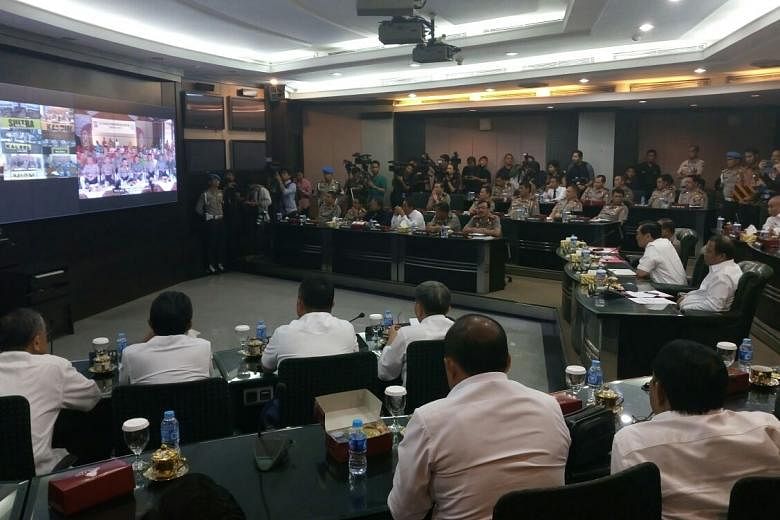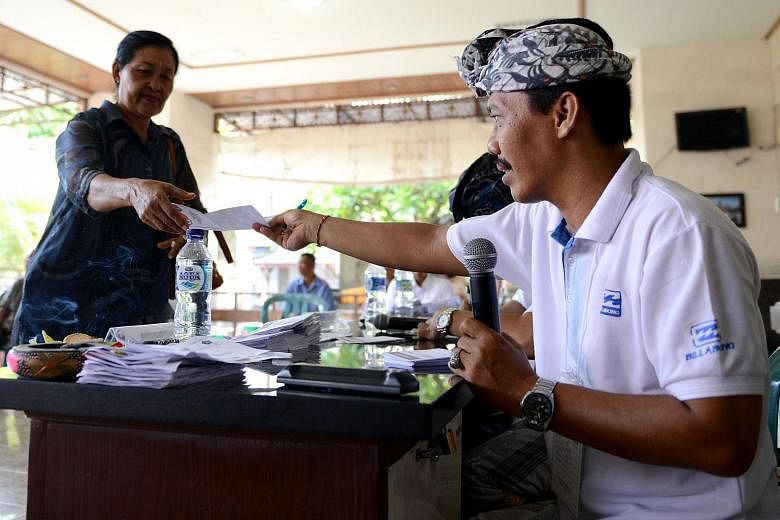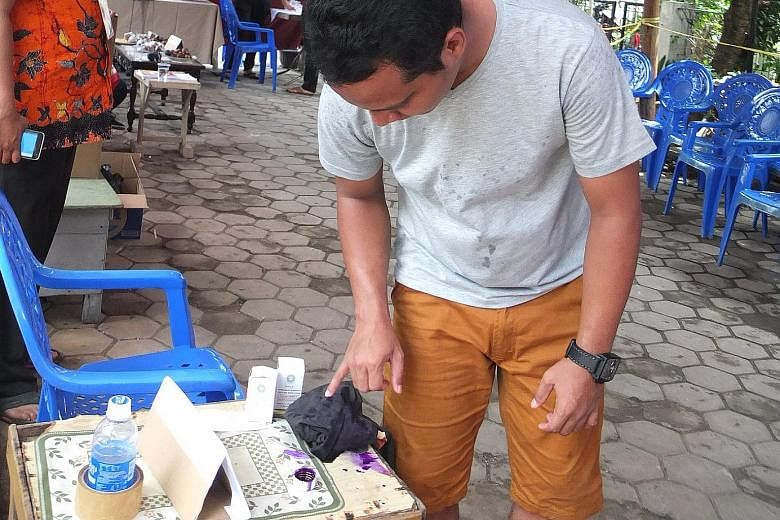JAKARTA - Indonesia's Coordinating Minister for Political, Legal and Security Affairs Luhut Pandjaitan said on Wednesday (Dec 9) that he is aware the eyes of the world will be watching closely as more than 100 million Indonesians headed to the polls for the country's first regional elections to be held simultaneously across eight provinces, regencies and municipalities.
Speaking to regional police chiefs via video conferencing, he said that while the country had already proven at last year's general election that it can uphold democracy, "this is the first time Indonesia... is holding the regional elections simultaneously".
He said: "We ask the police to help make sure the process of democracy will run smoothly today. We are being watched by the international community. We want to prove that democracy in Indonesia is mature enough."
National police chief Badrodin Haiti confirmed that more than 200,000 police and military personnel have been deployed to all 246,576 polling stations across Indonesia "to ensure security and peace".
Gen Badrodin also warned that any cases of alleged "money politics" will be investigated by the police under Article 149 of the Criminal Code.
The regional elections cover 269 regions, or just more than half of the electorates in Indonesia, which will see over 800 candidates contesting for the nine governor and vice-governor posts, 224 district heads and their deputies, and 36 mayors and deputies.
The polls close at 1pm across the country and the results are only expected to be out on Dec 18, with a quick count possibly taking place later on Wednesday evening.
Two other phases of such elections will be held in 2017 and 2018 in the rest of the country.
The move to hold these elections on the same day was aimed at cutting costs and improving efficiency. Efforts have also been made to boost voter turnout in a country where regional elections are often under-represented.
The last mayoral election in the East Java capital of Surabaya, for instance, saw only half of the two million registered voters show up.
"We are hoping to see more people participate in this year's election," the city's Pabean District polling committee head Hartono Priyo told The Jakarta Post.
Early estimates by the General Election Commission (KPU) indicate that there will be about 1.8 million first-time voters.
These elections are being held amid heightened security due to threats by domestic terror group linked to the Islamic State in Iraq and Syria (ISIS), as well as increased scrutiny at the polls to prevent electoral fraud.
Many voters will no doubt have the Freeport scandal in mind as they cast their ballots.
The debacle, involving Indonesia's House Speaker Setya Novanto who is accused of eliciting kickbacks from the United States copper and gold miner, had hogged the headlines over the last week as an ethics committee heard the case. Parts of the hearing were opened to the public.
Mr Setya is accused of attempting to secure shares worth more than US$1 billion (S$1.4 billion) in Freeport's Indonesian unit in return for helping the miner extend its contract to operate the world's biggest integrated gold mine in Indonesia's Papua province.




